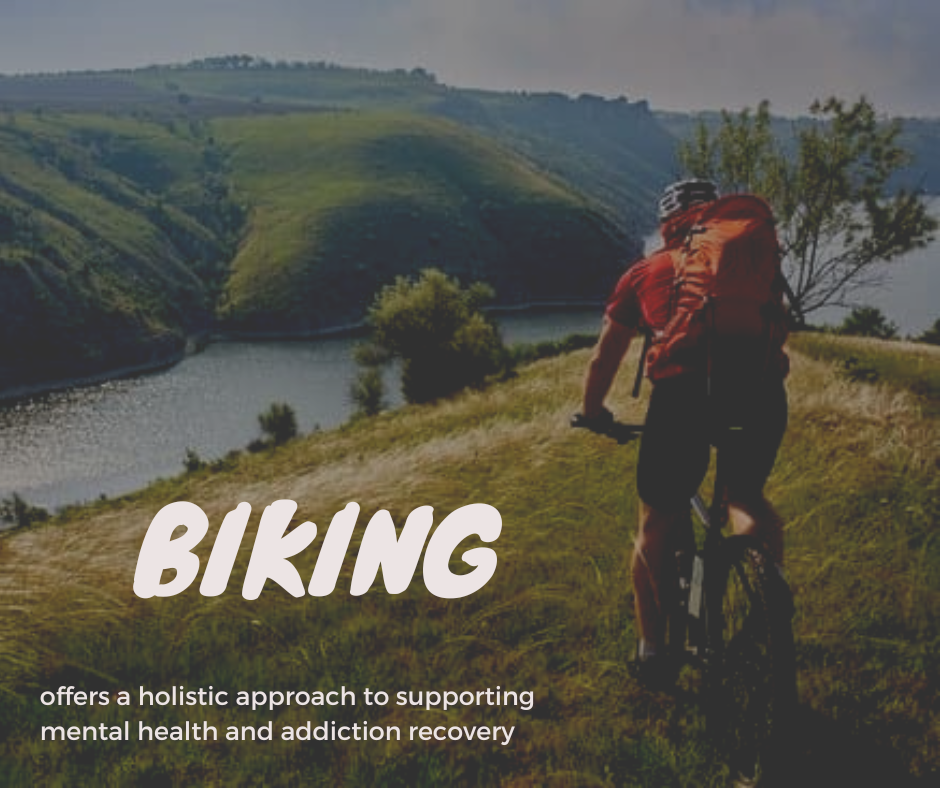
In the pursuit of mental health and addiction recovery, a variety of strategies are often employed, ranging from therapy and medication to lifestyle changes and support groups. One increasingly recognized and highly effective approach is incorporating physical exercise, particularly biking. Biking offers a multitude of benefits that support both mental health and the journey of addiction recovery, providing physical, emotional, and psychological advantages that are crucial for sustained well-being.
1. Physical Health and Endorphin Release
One of the most immediate benefits of biking is its positive impact on physical health. Regular cycling improves cardiovascular fitness, strengthens muscles, and enhances overall stamina. These physical benefits are crucial for individuals recovering from addiction, as substance abuse often takes a significant toll on the body. Moreover, physical exercise stimulates the release of endorphins—often referred to as “feel-good” hormones—which can help alleviate symptoms of depression and anxiety. This natural boost in mood can be particularly beneficial for those struggling with mental health issues or the emotional lows associated with withdrawal and recovery.
2. Stress Reduction and Mindfulness
Biking serves as an excellent stress reliever. The rhythmic nature of pedaling, coupled with the focus required to navigate different terrains, encourages a state of mindfulness. This meditative aspect of cycling allows individuals to be present in the moment, reducing the tendency to ruminate on past regrets or future anxieties. For people in recovery, learning to live in the present and manage stress is a vital skill. The physical exertion involved in biking also helps to dissipate built-up tension and stress, promoting a sense of calm and relaxation.
3. Establishing a Routine
Creating a structured routine is a cornerstone of addiction recovery. Having a regular schedule helps to provide stability and a sense of purpose, which can be incredibly grounding for individuals navigating the uncertainties of recovery. Incorporating biking into a daily or weekly routine can offer a constructive and healthy outlet for energy, reducing the likelihood of relapse into negative behaviors. The consistency and discipline required to maintain a biking regimen can mirror the commitment needed for sustained recovery, reinforcing positive habits.
4. Social Interaction and Support
Biking can be a social activity, providing opportunities to connect with others. Joining a cycling group or participating in community rides can create a supportive network of like-minded individuals. Social interactions and community support are essential for mental health and addiction recovery, helping to combat feelings of isolation and loneliness. Engaging with a community of cyclists can offer encouragement, companionship, and a sense of belonging, all of which are crucial for maintaining motivation and resilience in recovery.
5. Setting and Achieving Goals
Goal-setting is an empowering process that fosters self-esteem and confidence. Biking offers tangible goals, such as increasing distance, improving speed, or tackling challenging routes. Achieving these goals provides a sense of accomplishment and reinforces the belief in one’s capabilities. For individuals in recovery, this sense of achievement can be a powerful motivator, helping to build self-worth and a positive self-image.
Biking offers a holistic approach to supporting mental health and addiction recovery. Through physical benefits, stress reduction, routine establishment, social interaction, and goal achievement, biking provides a comprehensive set of tools to aid in recovery. The act of cycling not only enhances physical fitness but also promotes mental and emotional well-being, fostering a sense of freedom, accomplishment, and joy. For those on the path to recovery, getting on a bicycle can be a transformative step towards a healthier, more balanced, and fulfilling life.